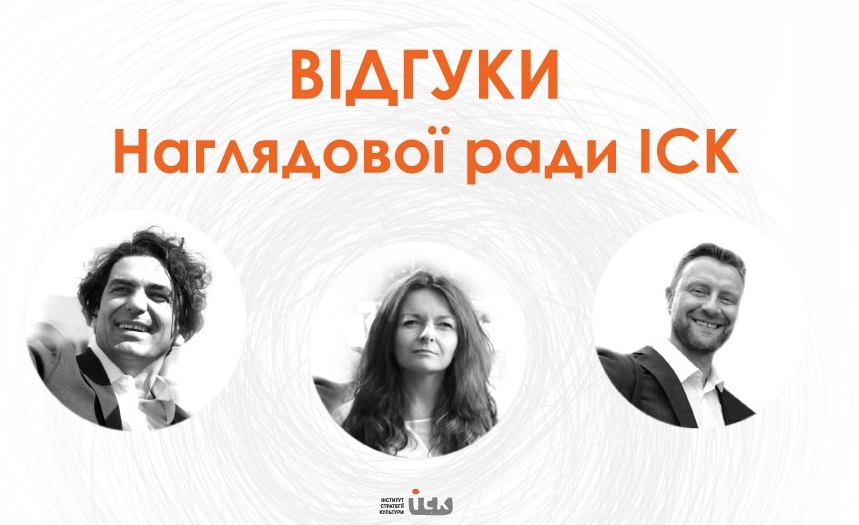The CSI Supervisory board is a permanent authority that evaluates the Institute work, offers expert advice, and monitors the further development of the institution.

The Supervisory board of the Institute includes experienced cultural experts from Poland, Great Britain and Ukraine: Krzysztof Maj, Robert Piaskowski, Robert Palmer, Oksana Forostyna, Borys Zakharov, Vira Baldyniuk, Sofiia Dyak, Oleksandr Kobzarev.
The CSI disseminates reporting information publicly what is important for ensuring transparency and legitimacy of our work. We bring to your attention the feedback of the Supervisory Board members on the activities Institute provided in 2019. See the original detailed reviews in the attachment.

Krzysztof Maj
CEO of Strefa Kultury Wroclaw
It is very important that the Culture Strategy Institute initiates and supports international projects, continues and develops cooperation with Wroclaw and Krakow. But also enters into new partnerships, for example, with Kaunas Institutions.
Also loud applause for the Rynok Square, 42! Your common voice and position to preserve the culture of the city center deserves recognition and honor!

Robert Piaskowski
Plenipotentiary Representative of the Mayor of Krakow for Culture, former program director of Krakowskie Biuro Festiwalowe
I am impressed by the idea of the Culture Congress in October. I’m proud of you and of the fact that I had the opportunity to see with my own eyes the Congress, the discussion quality, the guests’ prestige, its unusual venue, as well as thoughts that were heard from all sides. By conducting partner Ukrainian and Polish-Ukrainian educational programs this year [2019], you have become not only an institution but a real think tank.
I must emphasize that the activities of the Institute are very inspiring for Krakow because our city would also be an appropriate institution that would monitor the cultural city strategy, research, organize intersectoral conferences.

Oksana Forostyna
co-founder of Yakaboo Publishing
Working in the marginalized media sphere and having objectively fewer opportunities in a country where the capital attracts material and human resources in the humanitarian sphere, the Institute has managed to assert itself at the national level. The Institute’s team demonstrates the ability to maintain and develop a professional environment, revitalize horizontal ties in the community, overcome its internal contradictions, and create a trustful capital.


